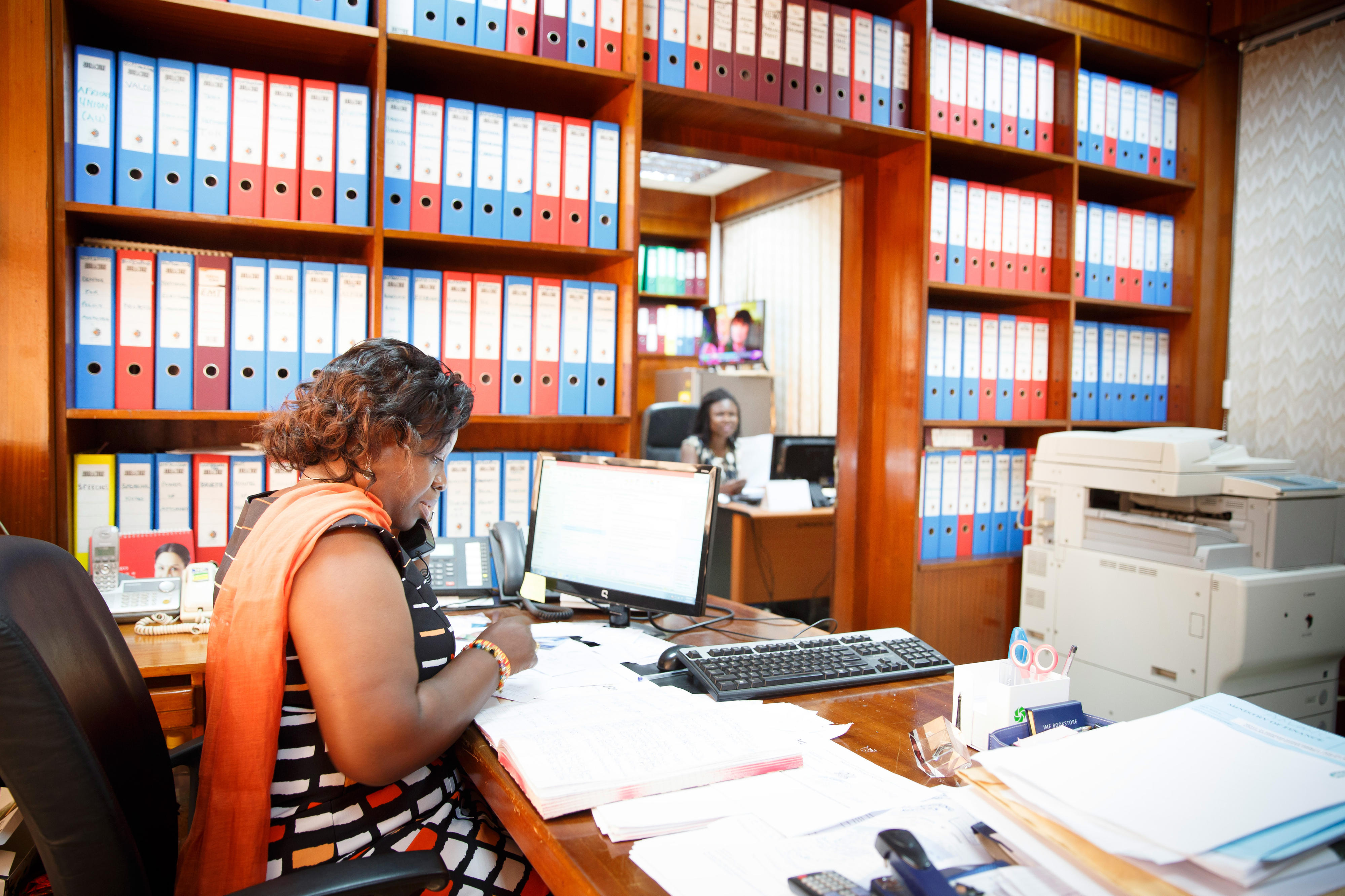Employees in the Ministry of Finance in Ghana
Copyright© Ute Grabowsky/photothek.net
Core area “Peaceful and inclusive societies” Decentralisation and improved public financial management and strengthening of human rights and gender equality
Ghana’s government is engaged in efforts to build the capacity of national, regional and local administrative institutions and to build up government expertise in the financial sector. These efforts are being supported through German development cooperation. Areas of activity are decentralisation and municipal development, and capacity building for administrative bodies. Among other things, Germany is participating at the district level in an incentives-based financing system for municipal investments.
The Ghanaian government is receiving support for its efforts to adapt its tax, financial and budget systems in line with the principles of good governance. This includes boosting domestic revenue, modernising the tax system, improving budget preparation and strengthening national accountability to parliament and to the supreme audit institution. These activities are making an important contribution to combating corruption.
What is more, German development cooperation activities are supporting Ghanaian civil society organisations. A focus of the work in this area is strengthening gender equality and ensuring that human rights are respected for everyone, including marginalised groups and communities. Under the constitution, women are equal to men and even granted privileges by certain provisions, but in practice, they are underrepresented in politics and often exposed to domestic violence. In addition, the LGBTIQ+ community in Ghana is facing increased restrictions and discrimination.
Impacts: Since 2017, with German assistance, around 5.7 million taxpayers have been registered. From 2017 to 2021, Ghana’s tax revenue increased by more than 75.4 per cent to 56 billion Ghanaian cedis (about 44.5 billion euros).
Since 2018, across the country more than 44,000 individual projects to improve social infrastructure (schools, clinics, sanitation) were supported via a District Development Fund.
As at: 27/10/2023
